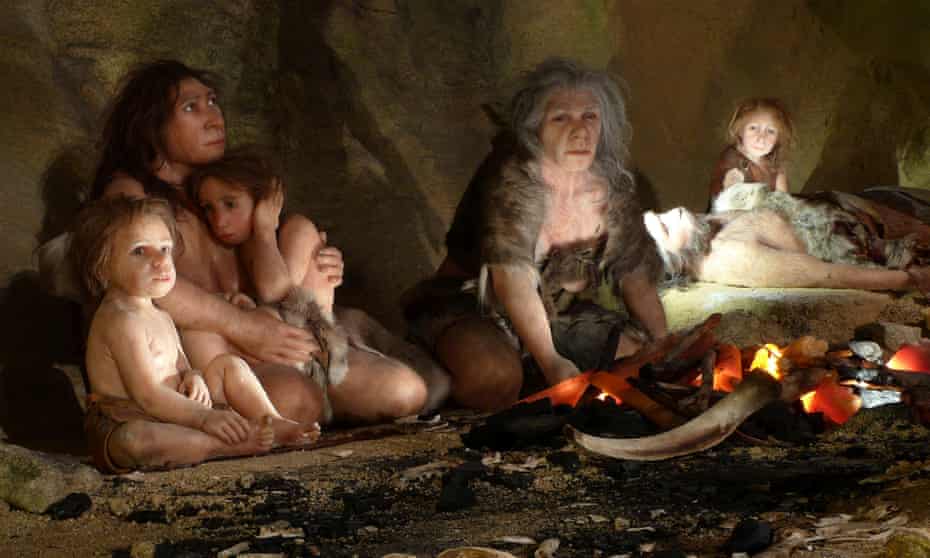It's The Neanderthal In You
"This major genetic risk factor for COVID-19 is so common that I started wondering whether it might actually be good for something.""We don't know at the moment why it was likely advantageous 10,000 years ago. There are many genes involved in the immune system in this region of the genome, so there are many plausible candidate genes.""If I were to guess, smallpox would be a good candidate. It also enters cells using chemokine receptors."Dr.Hugo Zeberg, Max Planck Institute for Evolutionary Anthropology, Germany
 |
| An exhibit at the Neanderthal museum in Krapina, Croatia. A strand of DNA increasing the risk of developing severe Covid-19 has been inherited from the Neanderthals, scientists believe. Photograph: Nikola Solic/Reuters/Corbis |
Research recently published in Proceedings of the National Academy of Sciences appears to strongly suggest that Neanderthal genes known to protect people from smallpox, could conversely explain why it is that some ethnic groups appear more at risk from contracting COVID.
South Asians throughout the pandemic are seen to have been at greater risk of severe illness, for example, even accounting for factors such as deprivation, employment and living conditions. Mutated genes inherited from Neanderthals seem to have doubled the risk of contracting severe COVID.
 |
A study conducted by Dr.Hugo Zeberg determined that roughly half of South Asians carry the mutations in comparison with a fifth of Europeans. The variants must have been beneficial at one time, reasoned Dr. Zeberg, for them to have been passed down over the ages. Research that Dr.Zeberg conducted revealed that their impact lowered the risk of HIV infection by about 27 percent.
That being the case, the researcher realized a suggestion that those same genes would in all likelihood prevent other disease from entering cells in the same manner as does smallpox. When infected with the SARS-CoV-2 virus causing COVID-19, some people become seriously ill, while others suffer mild or no symptoms.
Genes contribute to the chances of contracting severe infection, apart from known risk factors such as advanced age and chronic illnesses such as diabetes. Those with the Neanderthal mutation on chromosome 3 have fewer CCR5 receptors used by HIV to enter human cells, similar to the method of entry for smallpox. Leading researchers to believe that the mutation may have occurred thousands of years past, to protect against the virus, since eradicated.
 |
| Swedish geneticist Svante Pääbo, PhD, Director of the Max Planck Institute for Evolutionary Anthropology in Germany, is co-author of a recent study that traced a gene cluster linked to a higher risk of severe COVID-19 to 50,000-year-old Neanderthals from Croatia (Photo: Max Planck Institute for Evolutionary Anthropology) |
Labels: Anthropology, Disease Infection, Inherited Genes, Neanderthals, Research

0 Comments:
Post a Comment
<< Home